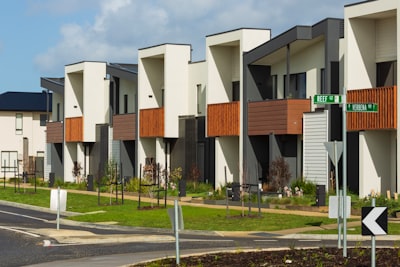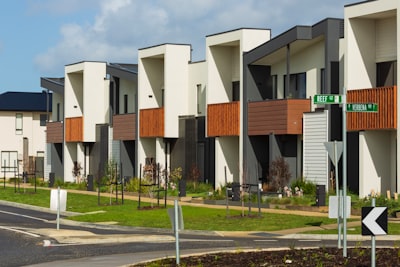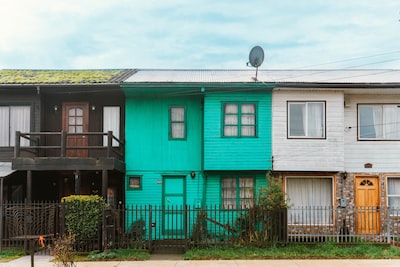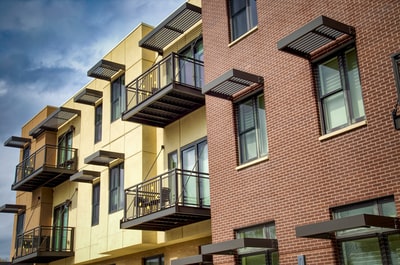In the bustling city of Winnipeg, the issue of affordable housing has sparked a heated controversy among residents and policymakers alike. With rising rental prices and limited availability, many are struggling to find a place to call home.
The debate over how to address this crisis has divided the community, with some advocating for government intervention and others believing in a more market-driven approach. As the city grapples with these complex issues, it is clear that finding a solution will require innovative thinking and a willingness to challenge long-held beliefs.
Join us as we delve into the world of Peg City Living and explore the Affordable Housing Controversy from all angles.
Table of Contents
Current Housing Crisis
Some people believe that rent control is necessary to help vulnerable communities, while others are concerned that it could hinder competition and innovation. The debate over social housing is also ongoing, as there is a discussion on how effectively it addresses housing issues. Balancing housing affordability with market dynamics presents a significant challenge in cities like Peg City.
Rising rent prices
Rising rental costs make it hard for people to find stable and affordable housing. With high demand and limited supply, landlords have the advantage, causing rents to go up and possibly leaving tenants insecure about housing. This can lead to financial strain for tenants who may struggle to pay their rent on time, leading to potential eviction if they fall behind on payments. Additionally, rising rental costs can force individuals to make difficult choices between paying for housing or other essential expenses, such as food and healthcare. One potential solution to address this issue is to implement rent control policies that limit the amount landlords can increase rent each year. This can help provide stability for tenants and prevent drastic spikes in rental costs that lead to housing insecurity. Additionally, increasing affordable housing options through government subsidies and incentives can help alleviate the burden of rising rental costs for low-income individuals and families.
Lack of affordable options
Affordable housing options like subsidized housing programs, rent control initiatives, and government-supported developments help create inclusive urban development. Community land trusts and cooperative housing models offer innovative ways to make homes more affordable and involve the community in decision-making. Affordable housing is important for low and moderate-income individuals who struggle to find suitable living spaces due to high prices.
Diverse affordable housing strategies can promote socioeconomic diversity, prevent displacement, and improve quality of life in communities. Prioritizing affordable housing meets essential needs and builds vibrant neighborhoods that support residents’ well-being and prosperity.
Solutions and Initiatives
These solutions might include government help for low-income individuals, rules to control rent prices, rewards for developers to build affordable homes, and backing for housing programs. By using a mix of these strategies, communities can work towards a fairer housing market that allows people from different backgrounds to find safe homes.
In addition, new approaches like community land trusts, where nonprofit groups own land for affordable housing, and shared-equity homeownership programs, where residents buy part of a property and pay rent for the rest, offer different ways to make housing more affordable. These methods help keep housing prices stable in the long term, benefiting residents and communities. By trying out creative solutions alongside traditional ones, stakeholders can help solve the complex problem of affordable housing.
Social housing programs
Social housing programs are funded by the government to develop and manage housing units for low-income individuals, ensuring access to safe homes at below-market rates. By prioritizing those in need, these programs help create more equitable communities and support individuals struggling to find stable housing. They also offer support services to improve residents’ overall well-being. These programs are crucial in addressing homelessness and housing insecurity by providing stable housing for vulnerable populations.
Through partnerships with local governments, non-profit organizations, and private developers, social housing initiatives can expand affordable housing and reduce inequalities. By serving as a safety net for those facing housing challenges, these programs help create inclusive and supportive communities. They not only ensure access to affordable housing but also enhance social cohesion and neighborhood livability.
Rent control policies
According to the Canadian Housing and Renewal Association, rent control plays a crucial role in maintaining housing affordability and stability for renters across Canada. These regulations vary by province, with some regions implementing stricter controls than others.
However, critics argue that rent control can lead to a reduction in available rental units and deter new construction, affecting the overall housing market dynamics. Striking a balance between tenant protection and stimulating housing supply remains a key challenge in the ongoing debate surrounding rent control policies.
Finding Affordable Housing in Winnipeg: A Comprehensive Guide from Moving To The Peg
Are you considering making the move to Winnipeg but feeling overwhelmed by the thought of finding affordable housing? Look no further! Moving To The Peg offers a comprehensive guide on navigating the housing market in Winnipeg. From rental options to buying a home, this resource will provide you with valuable information and tips on finding the perfect place to call home in Peg City.
Joining Moving To The Peg will connect you with local experts who can help make your transition to Winnipeg as smooth as possible.
Frequently Asked Questions
The controversy surrounds the limited availability of affordable housing options in Peg City, leading to concerns about rising rent prices and homelessness in the area.
Some proposed solutions include increasing funding for affordable housing programs, implementing rent control measures, and creating more affordable housing units through government initiatives.
Conclusion
In conclusion, affordable housing remains a pressing issue in Peg City, with many residents struggling to find adequate and affordable shelter. Various solutions have been proposed, from increasing subsidies for low-income individuals to incentivizing developers to build more affordable housing units.
It is essential for policymakers, community leaders, and residents to work together to address this issue and ensure that everyone has access to safe and affordable housing. While the road to affordable housing may be complex and challenging, it is a goal worth pursuing for the betterment of all residents in Peg City.
Let us continue to advocate for change and push for innovative solutions to create a more inclusive and equitable city for all.
When I first moved from Zambia to Winnipeg, I had no idea what to expect. The winters were colder than anything I had ever experienced, the culture was new, and navigating things like housing, jobs, and even the bus system felt overwhelming. I spent hours researching, learning from trial and error, and leaning on the kindness of locals who helped me adjust. That’s why I started MovingToThePeg.com—to make the transition easier for others. Whether you’re coming from Africa, Asia, or another part of Canada, I want this site to be a resource where you can find real, practical advice about settling in Winnipeg. From choosing the right neighborhood to finding community, I’m here to share everything I’ve learned so you can feel at home faster.






Leave a Reply